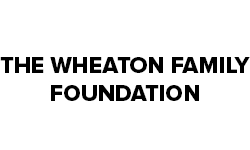Part C: Self, Community, and Place Resources
NHL warns hockey’s future threatened by climate change
By: Kevin McGran Sports Reporter, Published on Wed Jul 23 2014
Retrieved from: https://www.thestar.com/sports/hockey/2014/07/23/nhl_warns_hockeys_future_threatened_by_climate_change.html
November 2017
LESSON RESOURCES
All websites were accessed November 2017.
- The Village of the Widows (documentary of Sahtu Dene people who were hired by the Canadian government to transport uranium): https://web.archive.org/web/20190406051127/http://lindumfilms.com/villageofwidows
- http://storyofstuff.org/ Story of Stuff project website
- Story of Solutions – video – http://storyofstuff.org/movies/the-story-of-solutions/
- Story of Stuff – video – https://www.storyofstuff.org/movies/story-of-stuff/
- Story of Water – video
- Story of Change
- State of Rural Canada: https://www.google.ca/url?sa=t&rct=j&q=&esrc=s&source=web&cd=1&ved=0ahUKEwiPuaDUq7_XAhVV3mMKHWS5BzIQFggmMAA&url=http%3A%2F%2Fsorc.crrf.ca%2Fwp-content%2Fuploads%2F2015%2F10%2FSORC2015SK.pdf&usg=AOvVaw2qk3YyOqdkhUmQGbzU3LXZ
- Saskatchewan Trade and Export website: https://www.sasktrade.com
- United Nations Assembly Declaration on Rights of Indigenous Peoples – Environmental and Social Policy relating to Indigenous Peopleshttp://www.ebrd.com/downloads/about/sustainability/ESP_PR07_Eng.pdf
- Amazon Watch website: amazonwatch.org
- Cultural Survival: Advancing Indigenous Peoples’ Rights and Cultures Worldwide website: http://www.culturalsurvival.org
- Climate Change Impacts: http://www.epa.gov/climatechange/impacts
- License to Operate: Indigenous Relations and Free Prior and Informed Consent in the Mining Industry: http://www.sustainalytics.com/sites/default/files/indigenouspeople_fpic_final.pdf –
- Oxfam: Guide to Free Prior and Informed Consent: http://www.culturalsurvival.org
- Gross Domestic Product at Basic Prices Chart, by Primary Industry – this chart relates more closely to resource use: http://www.statcan.gc.ca/tables-tableaux/sum-som/l01/cst01/prim03-eng.htm
- Happy Planet Index: http://www.happyplanetindex.org/
- TED Talks Nic Marks – The Happy Planet Index – http://www.ted.com/talks/nic_marks_the_happy_planet_index
- World Happiness Report: http://worldhappiness.report/ed/2017/
- OECD Better Life Index – http://www.oecdbetterlifeindex.org/
- The World’s Happiest (And Saddest) Countries, 2013 – http://www.forbes.com/sites/christopherhelman/2013/10/29/the-worlds-happiest-and-saddest-countries-2013/
- Anti- Discrimination and Anti-Racism Observatory – http://p2pcanada.ca/anti-discrimination-and-racism-observatory/
- Choose Your Voice: http://www.chooseyourvoice.ca
- Walk a Mile Film Project – https://web.archive.org/web/20180623131716/https://www.thunderbay.ca/City_Government/News_and_Strategic_Initiatives/Aboriginal_Relations/Walk_A_Mile_Film_Project.htm
- Canada’s Action on Climate Change – https://web.archive.org/web/20170407195716/http://climatechange.gc.ca/default.asp?lang=En&n=E18C8F2D-1
- David Suzuki Foundation – http://www.davidsuzuki.org/issues/climate-change/
- Article from The Star NHL warns hockey’s future threatened by climate change http://www.thestar.com/sports/hockey/2014/07/23/nhl_warns_hockeys_future_threatened_by_climate_change.html
CROSS CURRICULAR CONNECTIONS
Language Arts
Themes
- Personal and Philosophical: Students will reflect upon:
- self-image and self-esteem; and,
- self and life, and on their beliefs and values and those of their society.
- Social, Cultural, and Historical: Students will
- look outward and examine their relationships with others, their community, and that of the world; and,
- consider the historical context.
- Environmental and Technological: Students will:
- explore the elements of the natural and constructed world and the role of technology and related developments in their society.
- Communicative: Students will:
- consider the role of communication in their lives and the ideas and technologies that help people become effective communicators.
Treaty Education
- TR7: Analyze to what extent each of the signatories to treaty meets their respective obligations.
- SI7: Examine Oral Tradition as a valid way of preserving accounts of what transpired and what was intended by entering into treaty.
- HC7: Examine the Indian Act, including its amendments, and explore the effects it has on the lives of First Nations.
- TPP7: Investigate the impact of Bill C31 on the equality of genders under the Indian Act.
Health
Understanding, Skills, and Confidences (USC)
- USC7.4 Demonstrate a personalized and coherent understanding of the importance of nurturing harmony in relationships (with self, others, and the environment), and apply effective strategies to re/establish harmony when conflict arises.
- USC7.7 Investigate and express an understanding of possible discrepancies in morals (e.g., beliefs, ethics, virtues, understanding of right/wrong) that may determine and/or affect the commitment to the well-being of self, family, community, and the environment.
Science
Life Science: Interactions within Ecosystems (IE)
- IE7.1 Relate key aspects of Indigenous knowledge to their understanding of ecosystems. [CP]
- IE7.2 Observe, illustrate, and analyze living organisms within local ecosystems as part of interconnected food webs, populations, and communities. [SI]
- IE7.4 Analyze how ecosystems change in response to natural and human influences, and propose actions to reduce the impact of human behaviour on a specific ecosystem. [DM, CP]
Earth and Space Science: Earth’s Crust and Resources (EC)
- EC7.1 Analyze societal and environmental impacts of historical and current catastrophic geological events, and scientific understanding of movements and forces within Earth’s crust. [SI]
- EC7.2 Identify locations and processes used to extract Earth’s geological resources and examine the impacts of those locations and processes on society and the environment. [SI, DM, CP]
- EC7.3 Investigate the characteristics and formation of the surface geology of Saskatchewan, including soil, and identify correlations between surface geology and past, present, and possible future land uses. [DM, SI]
FURTHER INVESTIGATION SUGGESTIONS
- Research the recycling programs in selected area in Canada and chosen Pacific Rim and Northern circumpolar countries. Do a comparison using charts, graphs etc. to show the differences.
- Examine temperature change over the last 50 years or more in Canada, and chosen Pacific Rim and Northern circumpolar counties.
- Have students record how much in weight they send to the landfill, or to recycle centers in one week, month etc. Then do a comparison of their results. (graph, chart). Discuss with students ways to reduce garbage and redo the activity to see if there is a difference.
- Examine the impact of landfills on the natural environment. Examples could include decomposition of items (i.e. pampers, plastic), chemicals, vegetation etc.
Investigate the International links of a Saskatchewan Business
- Saskatchewan Agriculture
- Saskatchewan’s State of Trade: https://www.sasktrade.com/pages/2016_saskatchewan_state_of_trade.html
Other
- Take a field trip to a local industry.
- Bring in a guest speaker that has industry ties, to discuss the advantages of having industry in your community.
- Bring in local leaders in your community to discuss stewardship.
- Visit a seniors citizens centre and interview locals regarding changes in industries and if it has been positive or negative.
GLOSSARY
“Text from Vocabulary.com, Copyright ©1998-2016 Thinkmap, Inc. All rights reserved.”
Common Good
The good of a community.
Ecological
Anything ecological relates to the science of ecology, which is the study of how living things and the environment do their thing.
Eg. If you’re interested in issues like preserving rain forests, saving endangered species, and keeping drinking water safe, you’re interested in ecological issues. Ecological things have to do with how plants and animals relate to each other, in good and bad ways, in specific environments-from the impact of floods on river insects to how smog harms humans. Just about anything people do has an ecological impact – for better or worse.
Globalization
The process of ideas, products, and people moving around the planet with greater ease and efficiency. Globalization takes advantage of cheaper labor in less developed nations but increases free trade between nations and the free flow of capital.
Eg. Globalization has transcended its traditionally economic concept to be used in many different ways now. The globalization of Barbie began with the opening of a Barbie boutique in Beijing. Use globalization anytime a trend spreads beyond its expected boundaries, reaches beyond expected populations. “At your high school, girls started a trend of wearing hard hats to school every day. Your cousin in Austria mentions girls doing it there. You can joke that the trend has ‘gone global.'”
Gross Domestic Product – GDP
The measure of an economy adopted by the United States in 1991; the total market values of goods and services produced by workers and capital within a nation’s borders during a given period (usually 1 year)
Gross National Product – GNP
Former measure of the United States economy; the total market value of goods and services produced by all citizens and capital during a given period (usually 1 yr)
Happiness Index
Leading global measure of sustainable well-being. Tracks national well-being against resource use.
Ted Talks – Nic Marks – The Happy Planet Index
http://www.ted.com/talks/nic_marks_the_happy_planet_index
Stewardship
Stewardship means the management or care of something, particularly the kind that works. If your company is making money, there’s probably been careful stewardship — or, a lot of luck.
Eg. The sphere or responsibility of a steward (as in a manager or administrator), stewardship is often used to mean “the care, handling and management of resources.” Your school requires stewardship to make sure its supplies aren’t stretched. Your clean water may be thanks to the stewardship of an environmental office. Though there is a steward on a ship to handle food and supplies, the ship in stewardship is not a seagoing vessel; it’s just a suffix.
Sustainable
If something is sustainable, than it can be maintained or continued. A 5-minute mile pace probably isn’t sustainable for anyone other than Olympic marathon runners.
These days this adjective is often used to describe something that has a low long-term effect on the environment, like “sustainable agriculture” — a method of farming that doesn’t ravage the land, deplete resources permanently or produce a great deal of pollution. Break down the word into two parts, sustain and able, to visualize and remember that you’re able to sustain something sustainable.
Sustainability
The property of being sustainable.
“Sustain” means to last over time, so sustainability is the ability of something to last. As a civilization, we are concerned about the sustainability of our planet.
Sustainability became a big idea after people began to realize that we were using up our natural resources, so you’re most likely to come across the word when you’re reading about recycling and energy use. If you hear someone talking about sustainability in the context of energy, they’re probably talking about alternatives to oil or coal — both of which will run out in the future. A sustainable source of energy is something that’s always there — like water or wind.
Renewable
Capable of being renewed.
Anything renewable can be replaced or has an endless supply. Renewable sources of energy don’t run out.
Since re means “again,” things that are renewable are always fresh and new: the supply can’t be used up. This word often applies to energy. Fossil fuels like oil are not renewable resources; we will run out of oil someday. Energy sources like solar and wind power are renewable, because there’s always going to be sunlight and wind. Anything renewable is going to last.
Renewable Resource
Any natural resource (as wood or solar energy) that can be replenished naturally with the passage of time.
Resources (actual and potential) supplied by nature
Non-renewable
That cannot be renewed.
Gas and oil are nonrenewable resources.
Primary (Industry)
Of first rank or importance or value; direct and immediate rather than secondary.
Primary means basically “first.” When you vote in a primary, that is the first election in a series. When a matter is of primary concern, it means it’s of first importance. Primary school is the first you go to (after nursery school, at least).
Secondary (Industry)
Being of second rank or importance or value; not direct or immediate
Something secondary is second most important. This can also refer to things that are not important at all.
If you have a primary duty, that’s what you need to do first. Secondary duties must be done next, since second is a form of the number two. You could say your secondary goal at a job is to get experience, if your main goal is to make money. Also, people will sometimes say, “This is our goal. Everything else is secondary.” That means other concerns are trivial or unimportant. Either way, secondary things never come first.
Tertiary (Industry) (adj.)
Coming in third.
Tertiary is another way of saying “third in importance,” like socializing with co-workers being a tertiary reason for getting an after-school job — less important than, first, earning money and second, gaining skills.
To correctly pronounce tertiary, say “TER-she-err-ee.” If you are the third child born in your family, don’t be tempted to call yourself the “tertiary child.” This means you are less important that your two older siblings. However, in some cases, tertiary does not have to do with ranking third — the Tertiary period marks the beginning of life for mammals, and in the United Kingdom, tertiary education means “college-level.”
APPENDIX
© 2023 Concentus Citizenship Education Foundation Inc. All Rights Reserved.









